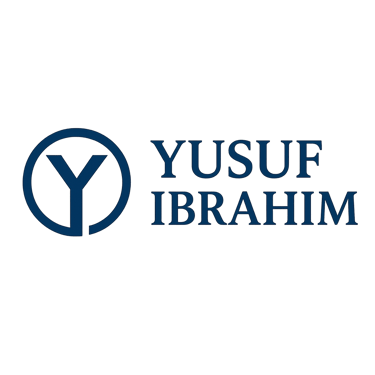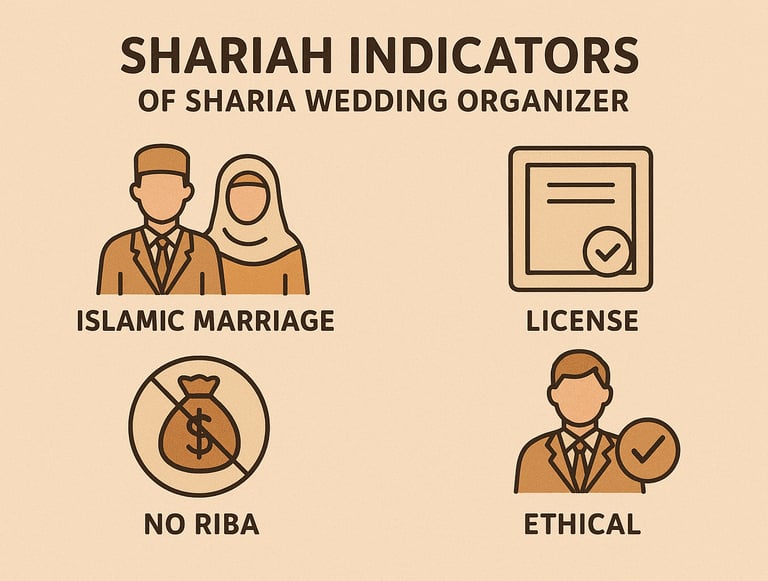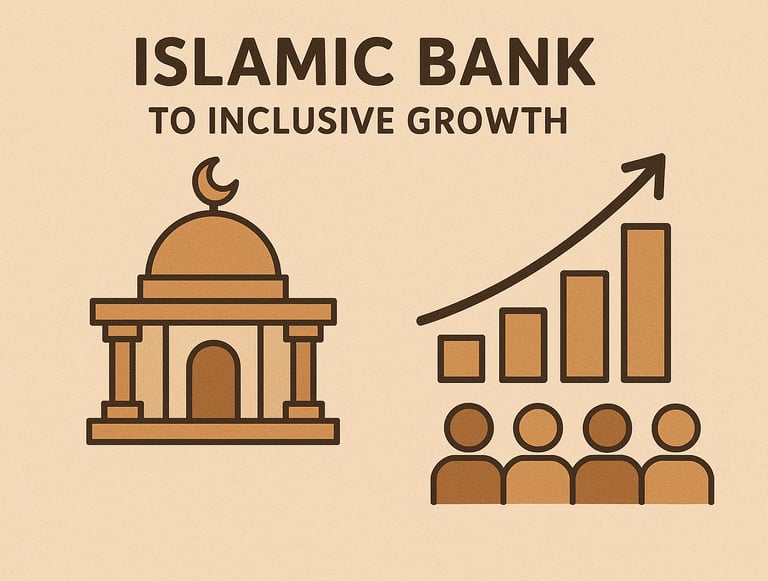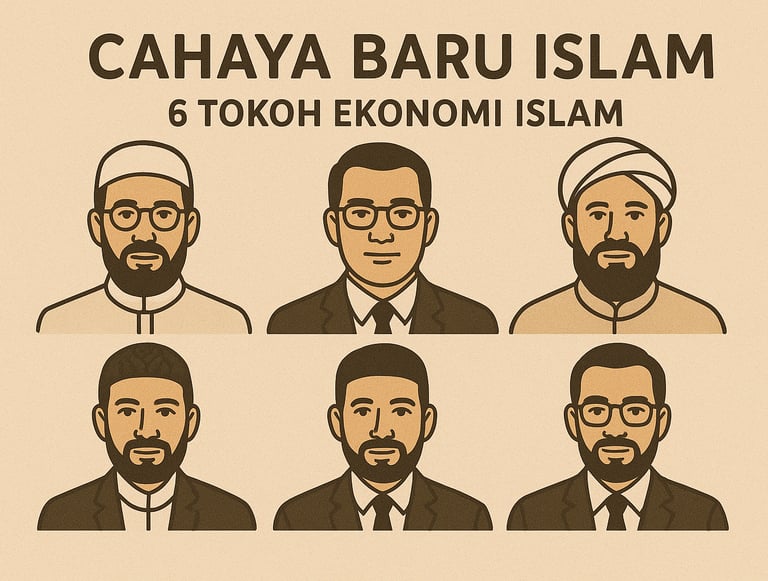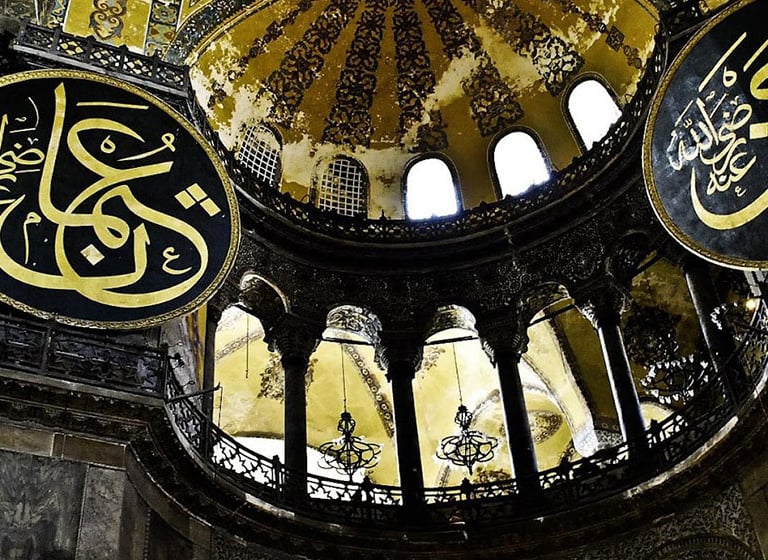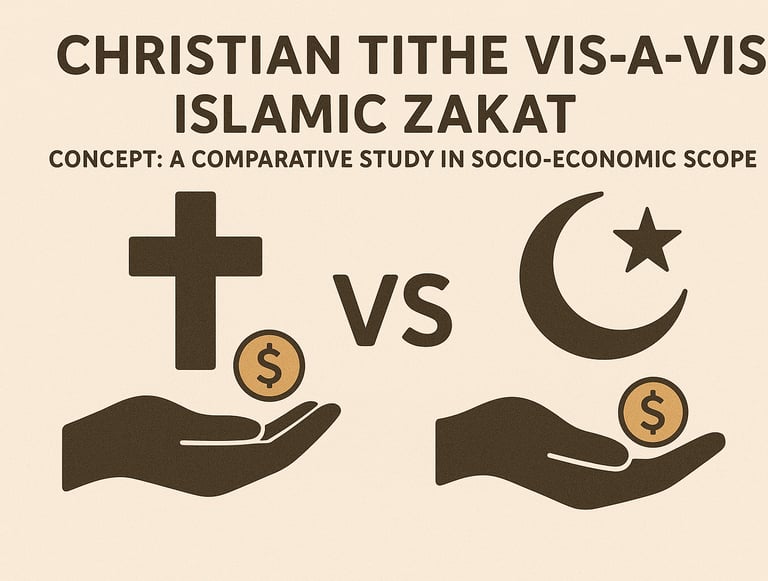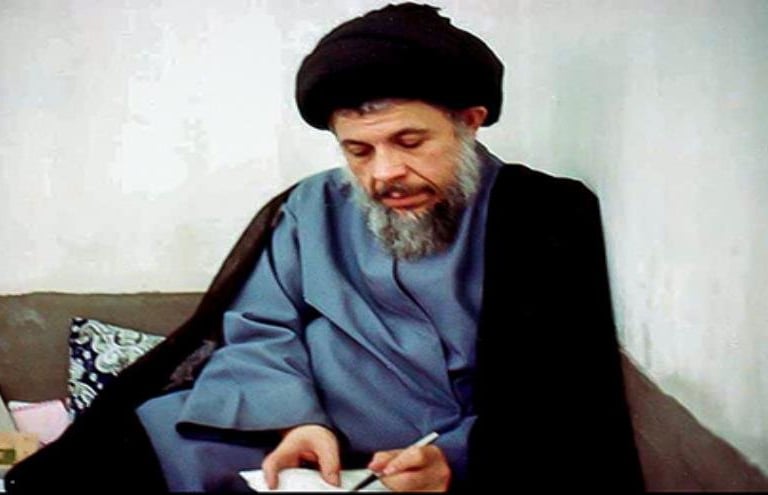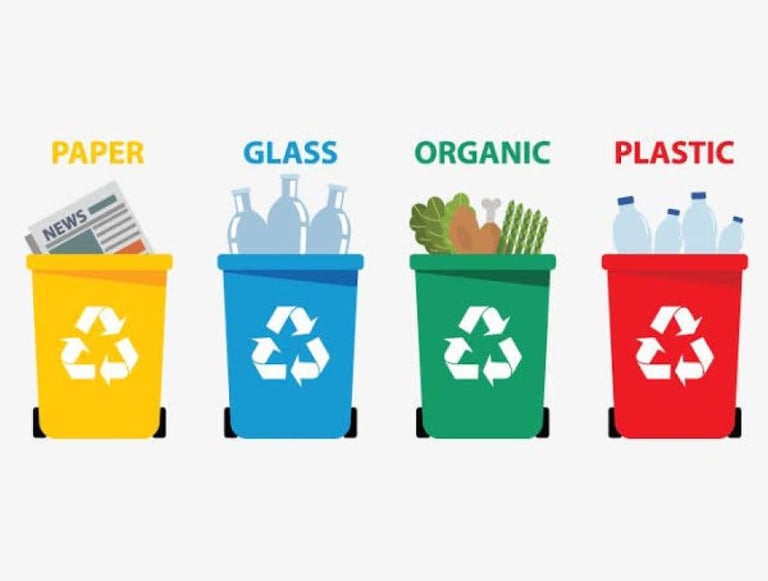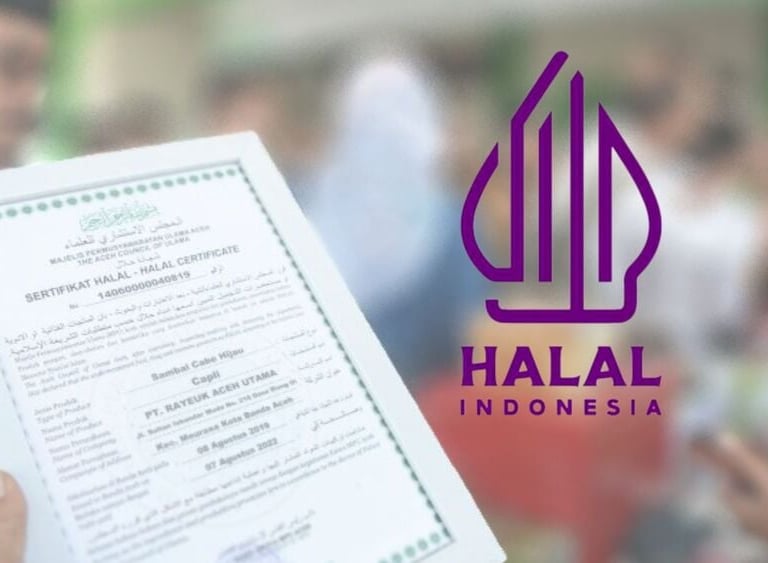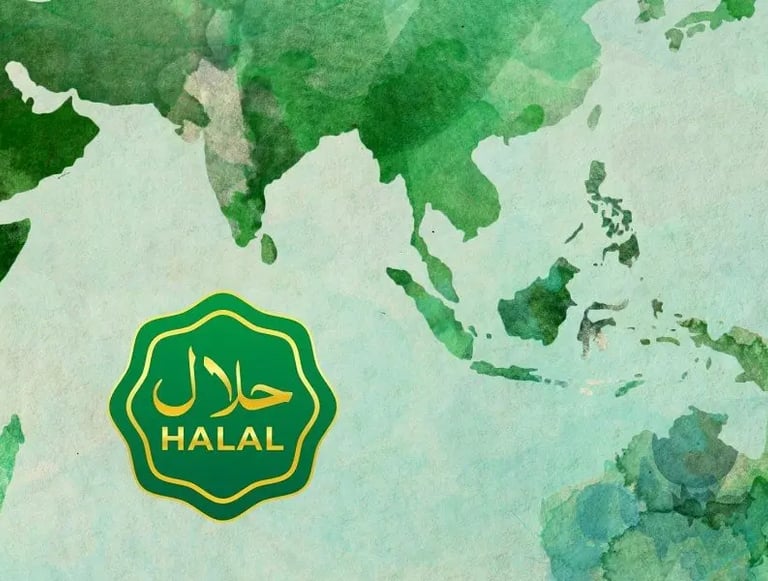Penelitian & Publikasi
Muhammad Yusuf Ibrahim aktif menulis dan mempublikasikan berbagai karya ilmiah di bidang ilmu ekonomi sejak 2019 dengan catatan sebagai berikut
A Comparative Study Of Khaldun, Smith, And Marx Thinking About The Labor Theory Of Value
The value of the goods or commodities depends on the worker's performance, according to the labor theory of value. Therefore, every worker must have a clear calculation of receiving wages. But how to determine the right calculation for the wages of a worker? In this case, Islam, capitalism and socialism have their respective views. So, this study aims to determine the views of the three schools about the labor theory of value. The method used by researcher in conducting this research is to use the method of literature study and comparative analysis. And to compare the thoughts of the three schools of economics, the researcher refers to the figure of the school's experts as representatives. Researcher chose Ibn Khaldun from the Islamic side, Adam Smith as a representative of capitalism, and Karl Marx as a reference figure for socialism.
Shariah Indicators Of Sharia Wedding Organizer
The study is aim to seek, compile, and propose an index to measure the shariah indicators of wedding organizer. The study was used a multi-stages process of methodology, that is a literature review method and descriptive analysis. A literature review is used to compile a basic theory of wedding organizer sharia index which will be reviewed from a religious and scientific resources. Then, it will be elaborated by a descriptive analysis. The findings is, there are sixteen indexs to measure a shariahness of wedding organizer , that is (1) no seclusion, (2) no tradition that replaces sharia, (3) no pre-wedding, (4) make-up artist has the same gender as the bridegroom and keep the prayer time, (5) no standing party, (6) modest clothes (according to sharia), (7) in collaboration with halal catering, (8) no excessive make-up (tabarruj), (9) using an Islamic bank account, providing package options, (10) contract according to sharia, (11) no music, (12) no alcohol, (13) only accept legal, and (14) unwed pregnancy.
An Empirical Analysis of Islamic Banking (IBs) Contribution to Indonesia’s Inclusive Growth
“Cahaya Baru Islam: 6 Tokoh Ekonomi Islam” menghadirkan perjalanan intelektual dan gagasan enam tokoh besar yang menjadi pilar dalam lahir dan berkembangnya ekonomi Islam modern. Melalui narasi yang runtut, buku ini mengulas kehidupan, pemikiran, serta kontribusi Shah Waliyullah, Jamaluddin al-Afghani, Muhammad Iqbal, Umar Chapra, Nejatullah Shiddiqi, dan Baqir as-Sadr.
Setiap tokoh ditampilkan dengan konteks sosial, politik, dan ekonomi pada zamannya, sehingga pembaca dapat memahami bagaimana pemikiran ekonomi Islam lahir sebagai respon atas kemunduran umat, kolonialisme, kapitalisme, dan tantangan globalisasi. Buku ini menyingkap gagasan tentang keadilan sosial, kritik terhadap riba, kapitalisme, serta konsep pembangunan ekonomi berbasis syariah yang menekankan nilai moral, spiritual, dan kesejahteraan umat.
Buku Hitam Putih Ekonomi Islam
“Hitam-Putih Ekonomi Islam” mengajak pembaca menyelami dinamika pemikiran dan praktik ekonomi Islam dalam dua wajahnya: idealitas normatif dan realitas empiris. Buku ini mengulas bagaimana ekonomi Islam dibangun di atas fondasi Al-Qur’an, Sunnah, dan khazanah intelektual ulama, sekaligus menyingkap tantangan, kontradiksi, dan dilema yang muncul dalam penerapannya di era modern.
Dengan gaya analitis-kritis, penulis menyoroti isu-isu kontemporer seperti riba, perbankan syariah, keuangan Islam, hingga problem pembangunan dan keadilan sosial. Setiap bab memperlihatkan dialektika antara “cahaya” dan “bayangan” dalam ekonomi Islam: harapan akan sistem ekonomi yang adil, beretika, dan sejahtera, namun juga keterbatasan, inkonsistensi, serta praktik yang terkadang jauh dari nilai ideal.
Zakat for Economic Recovery Post-Covid-19 Pandemic
The research is aim to analyze the effect of the zakat instrument on poverty and unemployment and test the zakat instrument as an alternative solution to the economic impact of the middle to lower class post-pandemic community. Using least squares regression and secondary data from BAZNAS and BPS for the 2002–2019 period, the results show that zakat has a negative and significant effect on poverty and unemployment. This study expands on the research of Beik & Arsyanti (2016) by providing the latest empirical evidence, thus strengthening the argument that zakat can be used as a tool for long-term economic recovery. Findings show that the zakat instrument has a negative relationship with the poverty and unemployment instrument. As well as the zakat instrument also has a significant effect on the poverty and unemployment instrument.
Christian Tithe vis-a-vis Islamic Zakat Concept: A Comparative Study in Socio-Economic Scope
The Influence of Sharia Financial Literacy on the Financial Behavior of the Community Fostered by the Daarut Tauhid Islamic Boarding School in Bogor Regency
The issue of sharia financial literacy is closely related to one's ability to know and understand Islamic financial products and services based on sharia principles. The purpose of sharia financial literacy is expected not only to know and understand sharia financial services institutions and sharia financial products and services but also how to be able to change and improve people's behavior in sharia financial management so as to improve public welfare. This study aims to analyze the level of Shariah financial literacy and the influence of the level of sharia financial literacy on the financial behavior of the people guided by the Daarut Tauhid Islamic Boarding School in Bogor. Data analysis uses descriptive statistical analysis and multiple linear regression analysis. Cumulatively, all sharia financial literacy variables have a positive effect on people's financial behavior. Partially, each variable has a positive effect.
The research is aim to attest and assess empirically the contribution of Islamic banking(IBs) on the inclusive growth in Indonesia. By taking a trial-stage method i.e.descriptive analysis to elaborate a statistical data, autoregressive distributed lag(ARDL) model to assess empirically the contribution in a long-term, and errorcorrection model (ECM) to assess the contribution in a short-term empirically. Thefindings are, total deposits and total financing only contribute positively significant intoGDP and gini ratio in a long-term, that similiar with the previous study. Then, a totalfinancing contribute negatively to all indicators of inclusive growth in a long-term, but,its only significance on GDP and gini ratio. But, it was contribute significantly to allindicators in a short-term. So. The findings was only evidence the significancecontribution of IBs on inclusive growth in a short-term. Based on it, a long-termcontribution of IBs still cathegorized as the area that requires an extentions in order toaccomplish it.
Cahaya Baru Islam: 6 Tokoh Ekonomi Islam
This study is aim to compare a social fund concept in Islam and Christian. Comparing a tithe as an instrumen of christian social funds and zakat as an instrument of Islamic social funds. Moreover, this study will delve a scheme of each concepts and compare its effeciency in achieve a socioeconomic goals. The study was applied a dual qualitative methods. The first is literature review method, which is use to identify a relevant theories of a study. Theories will be compared by a second method, that is, qualitative comparative analysis method. The findings is, tithe and zakat has same objectives, that is, a human prosperity. But, both of these differences in collecting and distribution procedure. A tithe is collected of 10% from a congregation when he gets sustenance. And the distribution is left to the church for any purpose. Meanwhile, a total collection fund of zakat is only 2.5% per Muslim. The research was only compare a tithe and zakat instruments as a representation of Islam and Christian social funds.
The Concept of State Asset Management Based on the Thoughts of Baqir As-Sadr
This study is a literature review of Baqir As-Sadr's thoughts on state asset management. It will also explain Baqir As-Sadr's background, the philosophical basis of his thinking, his views on assets, and his management methods. Therefore, this study adopts a qualitative approach with two stages: a literature review to study Baqir As-Sadr's thoughts on asset management, followed by a descriptive analysis to explain his thoughts, particularly on state asset management in the Indonesian context. The study results indicate that As-Sadr's primary goal of asset management is social welfare. To achieve this goal, several strategic policies need to be implemented, such as eliminating ownership for the private sector and changing it to management or utilization rights only. This aims to ensure that production is not excessive and benefits the community. This allows for proper and equitable distribution, allowing the state to regulate distribution effectively and equitably.
The Opportunity of Sovereign Blue Sukuk Issuance in Maritime Sectors: Case Study of Indonesia
The sea potential in Indonesia is very abundant, but the water governance is still poor and still raises concern for the community regarding the threat of damage. This is due to the limited financing of the maritime sector in Indonesia. This research tries to give alternative financing by using Sovereign Blue Sukuk, which further analyses the factors of benefit and opportunity if implemented. The method used is ANP with Benefit, Opportunity, Cost, and Risk (BOCR) network approach. The biggest weight in the benefit is improving people's welfare. As for the opportunity, the biggest weight is adding Sharia investment instruments. The greatest weight on load is the cost of coordination between institutions. From the risk, side is operational risk. In general, the cost rate is greater than the benefit, opportunity, and also risk. Furthermore, the alternative strategy that can be done to minimize the cost and risk are (1) institutional coordination; (2) the empowerment of fishermen; (3) Identification of marine projects.
Analysis of Alternative Waste Management Financing Models for the Development of Waste-to-Energy Power Plants
This research aims to design alternative financing models using Islamic commercial and social financial instruments. To achieve this, the analytic network process (ANP) became a method used to determine the right alternative financing model by using Islamic commercial and social financial instruments for PLTSa. The results showed that the right financing model for PLTSa is a combined model, consisting of several sources of funding, namely, Government Financing, Private Financing and Waqf Institution Financing. The right government financing is stated budget, sukuk and Islamic investment. Private financing consists of Syndication of Islamic Banks and corporations, in the financing of waqf institutions namely productive waqf & Infak and waqf, productive waqf & infak.
Halal Studies Based on Epistemological Approach
This study investigates the role of Shariah investment in Indonesia's inclusive growth. Shariah investment is measured in terms of Shariah stocks and sukuk. As determinants of inclusive growth, the study also includes several control variables adopted from separate literature, including the effect of COVID-19. In contrast to previous research, testing is conducted using a variety of inclusive growth metrics. Using principal component analysis (PCA) to compute the composite index of inclusive growth and time series regression models with monthly data at the national level from 2011 to 2022, this study finds three main conclusions. Evidence shows that Shariah investment contributes to inclusive growth in Indonesia, but the effects vary. Shariah stocks significantly affect poverty and unemployment, whereas Sukuk affects poverty and inequality. Both contributed to improving the Human Development Index (HDI) and inclusive growth. This study also revealed that COVID-19 was instrumental in reducing Indonesia's inclusive growth performance.
The Roles of Export of Coffee Commodity and Macroeconomics Factors on Unemployment in Indonesia
This study analyzes the role of coffee commodity exports and macroeconomic factors, including GDP, inflation, and interest rates, on Indonesia's unemployment rate. The estimation method used in this study is Robust Least Square (ROBUSTLS) which will then be estimated again using the Autoregressive Distributed Lag (ARDL) method as a robustness test. The estimation results using the ROBUSTLS method prove that coffee commodity exports and macroeconomic factors significantly affect Indonesia's unemployment rate in aggregate. This form of influence is negative for coffee commodity exports (ExpCof), gross domestic product (GDP), and interest rate (IR). While inflation (Inf) has a positive impact on the unemployment rate (Ump). These findings are reinforced by the estimation results using the ARDL method with the result that ExpCof, GDP, and Inf have a significant relationship to Ump, while Inf is not as significant as the findings from the estimation results using the ROBUSTLS method.
A Review of the Research in Islamic Education in Indonesia Through the Vosviewer Application
The Law on Agricultural Products with Pig Manure Fertilizer from the Perspective of the Halal Product Assurance System Criteria
Consumption is an important activity in human life. Therefore, Islam regulates it carefully, from upstream to downstream of the human consumption process. However, in practice, incidents occur that need to be specifically reviewed by Islamic law. Among them is the law on the consumption of agricultural products with fertilizers from pig derivatives such as oil and manure. In addition, consumption standards based on Islamic law have been standardized by the Indonesian government to protect Muslim consumers, known as the halal product guarantee system (SJPH) criteria. So it is necessary to study various aspects of community consumption from upstream to downstream. Therefore, this research aims to analyze the law on agricultural products with fertilizer made from pig manure which is compiled from fatwas and commented critically based on SJPH criteria.
This research aims to conduct a study of the halal concept based on an epistemological approach. An epistemological approach is used to analyze the ways humans gain knowledge about the concept of halal in Islam, including through experience, religious authority, and scientific methods. This research will examine literature from main sources related to the concept of halal in Islam, as well as analyze various epistemological approaches used in understanding the concept of halal. It is hoped that the results of this research will provide a deeper understanding of the concept of halal and how humans gain knowledge about halal in the context of the Islamic religion. The research method used is literature study and qualitative analysis, as well as a compilation of literature from religious and philosophical experts. The conclusion of this research is that halal epistemology is the basis that explains how halal processes are applied both in the legal and social realms. This concept is understood from the results of studies conducted by Muslim scholars.
Unlocking Inclusive Growth: The Impact of Shariah Investment in Indonesia
The data analyzed were 500 research publications on Islamic education indexed by Dimensions. Bibliometric analysis methods are used to collect data from related articles published within a certain period. The study indicates that research related to Islamic education in Indonesia has experienced an increase during the period from 1965 to 2023, with an annual growth rate of 3.86%. This signifies significant interest in this topic. Ismail Suardi Wekke has been identified as the most influential researcher with 7 published articles. Among the core journals, the Journal of Islamic Education stands out by publishing 20 documents related to the research theme. Keyword network analysis has yielded several research streams, including education on anti-corruption leadership, improvement of digital literacy in elementary schools, entrepreneurship and economics education in Islamic boarding schools, and enhancement of Sharia financial literacy in schools.
A Comparative Study On Halal Policy In Southeast Asian Countries
Each country is identified as having a halal certification body that plays a role in the process of certifying and guaranteeing product halalness. Based on the results of the author's analysis, it can be concluded that almost all member countries of Asean already have halal policy regulations which serve as guidelines for implementing halal product guarantees in their respective countries. As for countries that do not have regulations related to halal policies, such as Laos and Myanmar. However, in Myanmar, there is a halal certification service by a multinational halal certificate agency. In general, the mechanism for halal certification in ASEAN countries has the same stages, starting from registration, verification, audit, determination of halal products, issuance of halal certificates to the validity period of the halal certificate. The validity period is also a concern because the majority of the validity period of certificates in each ASEAN country is 1 year. Indonesia is the only country in Asean that enforces halal certificates for life or for production and requires halal certificates in Indonesia.
The Transformation of Halal Certification Regulations in Indonesia
This study aims to investigate and analyze the development of halal regulations in Indonesia from the establishment of LPPOM-MUI to the formation of BPJPH. The focus of this research is to understand policy changes, the transition process, and the impact of this transition on halal certification in Indonesia. This study uses descriptive analysis methods and historical approaches to trace the development of halal regulations in Indonesia. The data was obtained through a review of official documents, policies, regulations, and related literature. The results of this study reveal a significant evolution in halal regulations in Indonesia. Initially, the LPPOM-MUI was responsible for halal certification, but later, the Indonesian government established BPJPH as an autonomous body tasked with managing the halal product assurance system. This transition has an impact on various aspects, including the process of certification, accreditation, and supervision.
The Effect of Real Business Cycle on Islamic Capital Market Resilience in Indonesia
The research aims to investigate the extent of co-movement and the effect of the Real Business Cycle (RBC) on the Islamic Capital Market (ICM) in Indonesia. The methodology begins with the Hodrick-Prescott (HP) Filter to identify trends and cycles in the RBC and ICM data. Next, cross-correlation analysis is used to measure the co-movement between the two, determining how RBC fluctuations affect the Islamic capital market. Finally, the Vector Autoregressive (VAR) and Vector Error Correction Model (VECM) are applied to explore both the short-term and long-term causal relationships between RBC and ICM, offering insights into immediate and persistent effects on the market. The findings reveal a significant relationship between Real Business Cycle (RBC) indicators and the Islamic Capital Market (ICM), with notable shifts in investor behavior and varying impacts of GDP, unemployment, and exchange rates on Islamic financial instruments like Jakarta Islamic Index (JII) and Sukuk.
